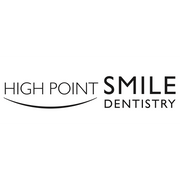How Is Gingivitis Different Than Periodontal Disease?

Quite often, the terms “gingivitis” and “periodontal disease” are used interchangeably to describe an infection and irritation of the gums—a problem that is estimated to impact more than half of American adults 30 years or older. But while these conditions may both affect the gums and produce similar symptoms, there are many important differences between them. If you’re curious about the ways these diseases work—and how to address them—consider this simple comparison of gingivitis and periodontal disease.
Gingivitis vs. Periodontal Disease
Symptoms
Gingivitis occurs when plaque—a colorless film of bacteria—causes gum inflammation. Gingivitis can cause the gums to appear red and swollen. They may also be tender and bleed when brushed or flossed.
When gingivitis isn’t treated properly, the bacteria in plaque—as well as tartar—will continue to infiltrate the gums and eventually cause an infection known as periodontal disease. As the infection progresses, individuals may lose gum tissue, experience tooth sensitivity, develop abscesses, and have chronic bad breath. In more advanced cases, the infection may spread to other parts of the body, deteriorate the jawbone, and cause teeth to fall out.
Treatment
 Gingivitis can often be reversed through intensive oral hygiene. Through proper brushing, flossing, and rinsing with mouthwash, individuals can reduce the buildup of plaque on the gums and minimize symptoms. Professional cleanings from a dentist are also highly beneficial.
Gingivitis can often be reversed through intensive oral hygiene. Through proper brushing, flossing, and rinsing with mouthwash, individuals can reduce the buildup of plaque on the gums and minimize symptoms. Professional cleanings from a dentist are also highly beneficial.
In addition to rigorous hygiene, periodontal disease can require a variety of treatments. If the disease is in its earlier stages, a dentist will likely recommend scaling and root planing. During this treatment, the dentist uses special tools to remove plaque and tartar from the teeth and the root surfaces beneath the gums. Antibiotics may also be prescribed to keep the infection at bay.
Severe cases of periodontal disease will sometimes require surgical treatment in which compromised gum tissue is surgically removed. Gum tissue and bone grafts may be necessary to restore lost material.
Prevention
Twice-daily brushing, once-daily flossing, and bi-annual teeth cleanings from a dentist are all critical steps to plaque prevention. Avoiding sugar, drinking water, and eating a nutritious diet will also help boost immunity and support overall gum health, making it less likely that you’ll develop gingivitis. Drinking alcohol and smoking cigarettes should also be avoided, as these habits are associated with a higher risk of gingivitis and periodontal disease.
If you’re concerned about the health of your gums, High Point Smile Dentistry has the resources to comfortably address both gingivitis and periodontal disease. Through routine teeth cleanings, this friendly clinic will thoroughly remove plaque and tartar to prevent inflammation, as well as detect early signs of gingivitis. If either problem is present, this practice offers state-of-the-art services to treat infections and restore overall periodontal health. To learn more about these capabilities, visit this High Point, NC, dentist online. For appointments, call (336) 884-4000.
About the Business
(490 reviews)
Have a question? Ask the experts!
Send your question

